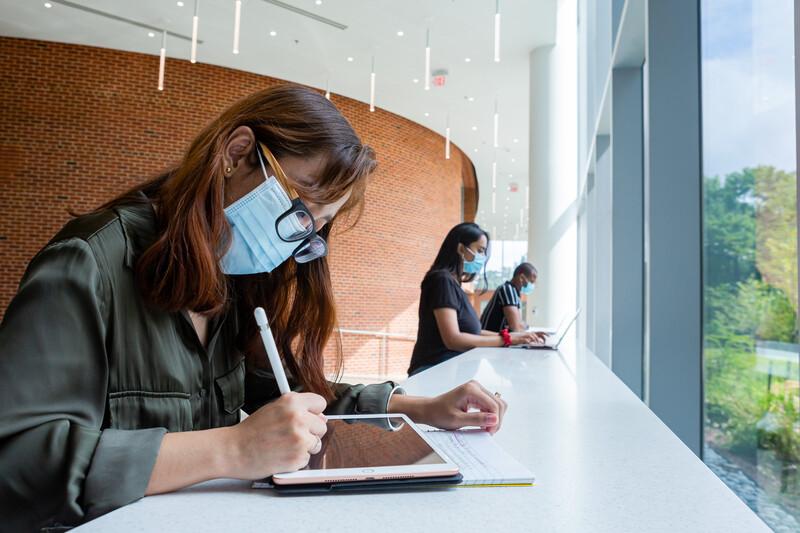
As COVID-19 vaccine distribution ramps up nationwide, unanswered questions remain about the vaccine’s effectiveness: Can it prevent infection of SARS-CoV-2 and transmission to others?
That’s what the University of Maryland, along with over 20 universities, will attempt to answer for a newly-launched national study, Prevent COVID U.
“We know that the three vaccines available in the U.S. today all but eliminate the risk of hospitalization and death for people who are fully vaccinated,” said Neil J. Sehgal, assistant professor of Health Policy and Management and associate director of the Health Systems and Policy Research Lab, who is leading the UMD component of the study as Principal Investigator.
“But at the same time, we don't know how those vaccines influence transmission in society, and we can't take for granted that there are some people who cannot be vaccinated.”
The five-month study, funded by the National Institute of Allergy and Infectious Diseases—part of the National Institutes of Health (NIH)—is seeking to enroll 12,000 college students, ages 18 to 26. UMD hopes to recruit 1,000 Terps, and 200 have registered so far, Sehgal said.
The study wants to assess transmission on college campuses because there's congregate living among students—either in dorms or apartments— and students tend to socialize more, he added.
To be eligible to participate, students can't have been vaccinated, they can't have known that they’ve contracted COVID and they have to live on or around campus through August.
They’ll receive the Moderna vaccine, get COVID tested twice a week, be compensated up to $1,000 and identify close contacts, such as a roommate or co-worker, who will be invited to play a role in the study and also get compensated.
The study is randomized for when participants will be vaccinated.
Half will receive the vaccine beginning April 9, and the other half will get it during the first week of July. Additionally, participants will have to answer daily questionnaires in an eDiary app, take daily nasal swabs and provide blood samples.
“We'll have some participants in the April arm who will contract COVID, and we’ll have a few ” in the July arm who’ll contract COVID,” Sehgal said. “We want to assess the difference in transmissibility between those two arms of the study.”
Sehgal and his research team—Co-PI and Associate Professor Dylan H. Roby, Assistant Professors Steven J. Prior and Sushant Ranadive from Kinesiology, research study coordinator Nadiyah Alvi, student volunteer team coordinator Veeraj Shah, study doctor Don Milton and nine other student workers—have transformed two ground-floor classrooms in the UMD School of Public Health building into a pop-up clinic, which will be used to conduct blood draws and administer vaccinations.
“We hope to have six phlebotomists on-site doing blood draws starting next week,” Sehgal said.
“The first clinical step in the study for every participant is to have a small amount of blood drawn for serologic analysis, and that serology is going to be run by the coordinating center lab that'll be processing all 12,000 participants’ samples.”
The second clinical step is the vaccinations. UMD is partnering with Walgreens, which will be on-site once a week to vaccinate students, according to Sehgal.
He is working closely with Clemson University and Indiana State University as a trial team, sharing resources. Once a week, Sehgal checks in with the other participating universities and the team from Seattle’s Fred Hutchinson Cancer Research Center, the headquarters of the COVID-19 Prevention Network (CoVPN), which designed and manages the study.
Sehgal said he got vaccinated because he wants to protect himself, as well as others around him. He hopes that the study’s outcomes will be able to direct decisions about returning to campus, and ultimately, normalcy in society.
“For a year, people have been scared of college students, and society has viewed college-age students as disease vectors,” Sehgal said.
“What's really powerful about this study for me is that those same students that society has been fearful of are going to be responsible for helping to end the pandemic.”
To enroll or learn more about the Prevent COVID U study, visit preventcovidu.org.
Related Links: